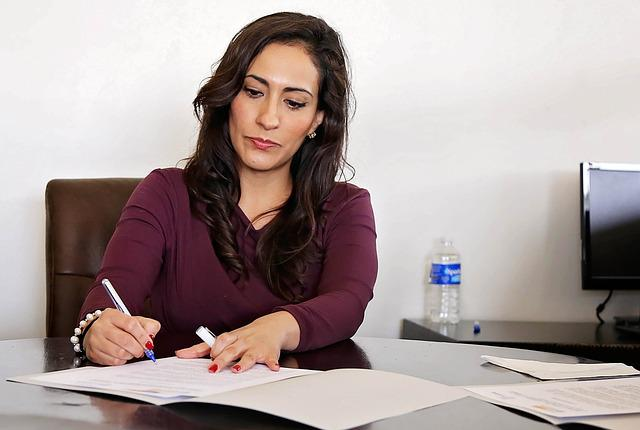What is the difference between an Executive Coach & a Leadership Coach?

The focus of executive coaching is different from leadership coaching. Executive coaching typically focuses on developing the individual leader, while leadership coaching focuses on developing the team or organization. Executive coaches work with leaders to help them grow and improve their skills. Leaders, in turn, use this growth to lead their teams better. Executive coaching can help individuals learn new skills, become more effective communicators, manage stress, and set goals.
Leadership coaching is a relatively new field that is growing in popularity. Its goal is to help organizations develop their leaders and create a leadership culture throughout the company. Leadership coaches work with teams to help them understand their strengths and weaknesses and how they can work together more effectively. Coaching can also help teams develop goals and strategies.
There are many similarities between executive coaching and leadership coaching. Both types of coaching can help individuals learn new skills, become better communicators, and set goals. However, executive coaching typically focuses on the individual leader, while leadership coaching focuses on the team or organization. Executive coaches also work with leaders to help them manage stress and become more effective communicators. Leadership coaches will also help teams understand their strengths and weaknesses and develop goals and strategies.
Benefits of using a Leadership Coaching services

When it comes to leadership coaching, there are countless benefits that organizations can reap. Not only does the coaching help to develop individual leaders within the company, but it also increases productivity, morale and overall team effectiveness. To understand how and why leadership coaching is so beneficial, it’s important first to understand what it is.
Leadership coaching is a process that helps individuals achieve their personal and professional goals by increasing self-awareness and developing skills related to communication, problem-solving and decision-making. Coaches work with clients to set objectives and identify the resources needed. The coaching focuses on the client’s current and future roles, not on past experiences or failures.
Leadership coaching provides individuals with the tools they need to be successful in their roles. They learn to communicate better with their teams, manage conflict, make decisions and solve problems. This makes them more effective leaders and strengthens relationships within the team. Coaching also helps individuals develop a vision for their career and create a plan to achieve their goals.
The benefits of leadership coaching extend beyond the individual leader. When teams have strong leaders with the necessary skills, productivity increases, as does morale. Studies have shown that teams with effective leaders are up to five times more productive than those without one. This increased productivity can lead to better results for the organization.
Leadership coaching is an investment in your people and your business. It provides individuals with the tools they need to be successful in their roles and strengthens relationships within the team. The increased productivity of effective leaders can lead to better organizational results. Leadership coaching may be right for you if you’re looking for a way to develop your leaders and improve your business.
What does Leadership Coaching entail?

Executive coaching and leadership coaching are similar, but not the same. Executive coaching is for anyone in a position of authority, while leadership coaching is specifically for those who wish to inspire others to achieve common goals. Executive coaching focuses on developing individuals to excel in their current roles. Leaders must be able to motivate and empower their teams while retaining the big-picture perspective.
The goal of leadership coaching is different in that it is about developing the whole person. Coaches help clients become more aware of their strengths and weaknesses and how they can use both to inspire others. Leaders must have excellent communication skills to articulate a vision and motivate their team effectively. They must also be able to build relationships based on trust.
The process of leadership coaching typically includes assessment, goal setting, feedback, and action planning. Coaches will often use personality tests or 360-degree feedback surveys to understand their clients better. Then coaches and clients work together to establish realistic goals. Coaches provide feedback and guidance along the way, helping clients implement their plans.
Those in a leadership role find the one-on-one coaching sessions valuable through honest conversations where they gain clarity, develop personal and professional strategies, and explore their blind spots to success. The sessions often help leaders face challenges in a safe environment, with a coach focused on supporting the leader to see their way through to the other side.
As appropriate, the coach will also facilitate brainstorming sessions to support the leader in overcoming the performance challenges of individuals and organizations.
The leader-coach relationship is built on trust and confidentiality, allowing for a depth of conversation that helps the leader explore all aspects of their Leadership. Using all the skills developed through professional coaching, multiple industries, and positive psychology, the client will gain the resources to overcome the challenging times often associated with leadership roles.
Leaders participating in coaching reports improved communication skills, greater self-awareness, and better decision-making. This, in turn, leads to increased productivity and profitability for their organization. Coaching may be the right step if you’re looking to invest in your leaders.
Leadership coaching can be an extremely valuable tool for developing future leaders. By helping individuals become more aware of themselves and their impact on others, coaches can help them reach their full potential. Leaders who undergo coaching are better equipped to inspire others, communicate effectively, and achieve common goals.
How do coaches help leaders become more aware of themselves and their impact on others?

A leadership coach is vital to any organization, regardless of size. Their main goal is to help leaders become more aware of themselves and their impact on others. This type of coaching is essential for those who wish to improve their communication skills and inspire others to reach common goals.
However, it’s important to note that mentors don’t necessarily have to be more senior than the people they mentor. What matters is that mentors have an experience that others can learn from. As such, leadership coaching can be extremely beneficial for anyone who aspires to become a better leader.
There are several things a leadership coach can do to help their clients become better leaders.
First, they will help the client develop self-awareness. This involves understanding one’s strengths and weaknesses and how they affect the individual and the team. Once this is understood, the coach can help the client focus on using their strengths and improve upon any weaknesses.
Second, good coaches will help their clients build better relationships with others. This includes developing better communication skills and understanding how different personalities work together. A leader needs to be able to get along with everyone on their team and those outside of it.
Lastly, a good coach will help their client set and achieve goals. Leaders need to be able to think long-term and have a plan for where they want their team or organization to be in the future. With guidance from a coach, they can develop achievable goals that will help them move closer to their ultimate vision.
Remember, a great coach will aim to ensure the leader’s peak performance by showing them that leadership isn’t just about getting your own way but showing up authentically and consistently in executing the organization’s various business plans.
Who do leadership coaches work with?

Leadership coaches work with a variety of people in various positions and roles. Typically, their clients are those in leadership positions or those with the potential to be leaders. However, this is not always the case. Coaches may also work with individuals who want to practice leadership development and other skills.
Leaders come from all walks of life and occupy different organizational roles. They can be executives, managers, supervisors, or team leaders. Their ability to inspire others and significantly impact the organization’s performance is what sets them apart. Leaders must be able to communicate effectively and connect with people on a personal level. They must also be able to think strategically and make sound decisions under pressure.
Coaches work with their clients to help them understand their strengths and weaknesses. They also help clients develop communication, problem-solving, decision-making, and networking skills. Coaches assist clients in setting goals and creating a plan of action to achieve them. Lastly, they provide support and guidance along the way.
The goal of a leadership coach is to help their client become the best version of themselves. This is a competitive advantage among high-performing teams at the C Suite level, where everyone is perceived as talented.
Developing the leader’s skills is a strategy adopted by those organizations and individuals that recognize the right training and support of their c suite executives will have a massively positive impact on the daily lives of everyone within the business. Business results improve with the improved performance, confidence, and understanding of their role within the organization.
Of course, it may well be that the client realizes they are unsuited to the leadership role. In these instances, the leadership coach can support all concerned and assist in smooth career transitions, benefiting all concerned.
What are some leadership challenges associated with leadership roles, and how can coaching help overcome them?

One of the challenges that leaders often face is making decisions. This can be especially difficult when several options are available and no clear right or wrong answer. Coaching can help leaders develop their decision-making skills by teaching them how to weigh the pros and cons of each option and how to identify potential risks and rewards.
Leaders also need to be able to inspire and motivate their team members. Coaching can help leaders learn how to give clear instructions, set achievable goals, and provide positive and constructive feedback.
In addition, leaders need to be effective communicators. Coaching can help them learn how to express themselves clearly and concisely, listen actively, and build trust with their team members.
Coaching can also help leaders manage stress and maintain a healthy work/life balance. Coaches can help leaders manage their stress levels more effectively by providing a safe space for reflection and support during difficult times.
What makes a good leadership coach?

If you want to be an effective leader, it is important to have a patient and supportive coach. A leadership coach should be someone you can trust to help you set and achieve goals. They should also be knowledgeable to help you troubleshoot any problems you may have along the way. Look for these qualities:
- They should be patient and supportive.
- They should be knowledgeable about leadership coaching.
- They should be able to help you set and achieve goals.
- They should be a good listener.
- They should provide positive and constructive feedback.
If you are looking for a leadership coach, be sure to choose someone who is experienced and whom you feel comfortable with. A good coach will help you identify your strengths and weaknesses, set achievable goals, and overcome any challenges you may face. You can reach your full potential as a leader with the right coach.

If you want to become a better leader, consider signing up for a leadership coaching program. Contact joel@coachingsuccess.ca to help determine whether this is the right path for you and provide you with more information on the services offered. With the help of a qualified coach, you can develop the skills you need to reach your full potential as a leader.



